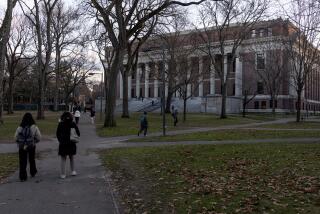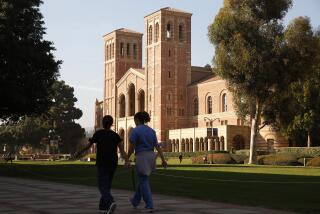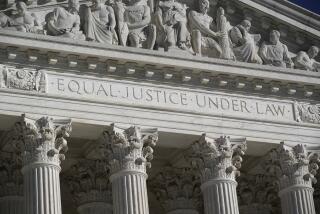‘Dialogue’ Without Debate
- Share via
By showing little tolerance for views different from his, John Hope Franklin, the distinguished and respected historian who serves as chairman of President Clinton’s advisory panel on race, has undermined the president’s intent to engage the nation in a dialogue on race in order to better understand the values of diversity.
Last week at the University of Maryland, Franklin’s panel held a hearing on how best to achieve diversity on college campuses. Wrongly, Franklin decided that only supporters of affirmative action should be heard.
Furthermore, he singled out Ward Connerly, the University of California regent who led the effort to pass Proposition 209, as a person whose opinion he deemed essentially worthless. “I am not certain,” said Franklin, “what Mr. Connerly . . . could contribute to this discussion.”
These exclusionary words in a hearing that aimed at finding ways to increase inclusion were counterproductive, to say the least. Clinton’s advisory panel on race is now hamstrung by the avoidance of debate.
Connerly gained national attention by incorrectly equating affirmative action with quotas, but he deserves to be heard if the issues of race and diversity are on the table. His arguments, whether you judge them legitimate or whether you judge them disingenuous as we do, only gain power when quashed.
The issues addressed by the panel are diversity, its value in our society and ways to exploit that value for the betterment of all. That goes beyond the single-issue politics of those who want to kill affirmative action, which is a proper tool, one of many, to open the doors of opportunity to qualified people who have been historically left out. History matters; it leaves a legacy, and we must be honest in addressing that legacy.
Sadly, the controversy over chairman Franklin’s remarks will detract from that task. Once again, the politics of exclusion fail us all.
More to Read
Get the L.A. Times Politics newsletter
Deeply reported insights into legislation, politics and policy from Sacramento, Washington and beyond. In your inbox twice per week.
You may occasionally receive promotional content from the Los Angeles Times.










